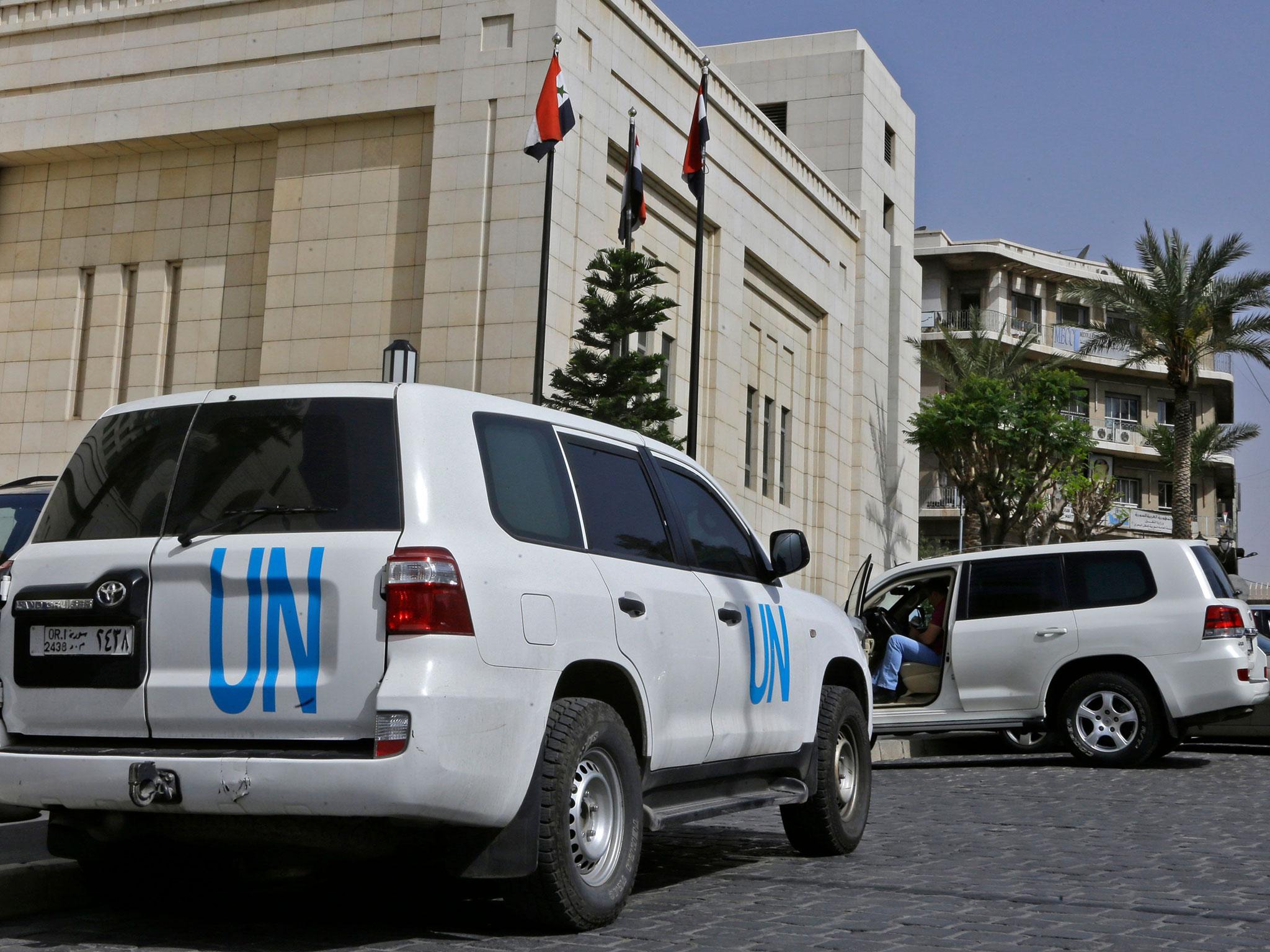Chlorine gas was dropped on Syrian rebel town Saraqib, say OPCW
Witnesses on the ground told monitors chlorine was dropped by barrel bombs from a Syrian government helicopter

Your support helps us to tell the story
From reproductive rights to climate change to Big Tech, The Independent is on the ground when the story is developing. Whether it's investigating the financials of Elon Musk's pro-Trump PAC or producing our latest documentary, 'The A Word', which shines a light on the American women fighting for reproductive rights, we know how important it is to parse out the facts from the messaging.
At such a critical moment in US history, we need reporters on the ground. Your donation allows us to keep sending journalists to speak to both sides of the story.
The Independent is trusted by Americans across the entire political spectrum. And unlike many other quality news outlets, we choose not to lock Americans out of our reporting and analysis with paywalls. We believe quality journalism should be available to everyone, paid for by those who can afford it.
Your support makes all the difference.Poisonous chlorine gas was used as a weapon on a rebel-held Syrian town earlier this year, tests conducted by an international chemical weapons watchdog show.
Investigators from the Organisation for the Prohibition of Chemical Weapons (OPCW) used laboratory tests to determine Saraqib in Idlib province was targeted by chlorine released from cylinders in an attack in February.
As per standard OPCW policy, Wednesday’s latest report on the systemic use of banned munitions in the Syrian civil war did not speculate as to who was behind the attack.
Witnesses on the ground, however, told monitors and journalists the chlorine was dropped by illegal barrel bombs from a helicopter. The only fighting force in Syria known to use low-flying helicopters in bombing raids is President Bashar al-Assad’s government.
The OPCW report used samples from soil, canisters and impact sites to determine “chlorine was released from cylinders by mechanical impact in the Al Talil neighbourhood of Saraqib”.
A total of 11 people were treated for breathing difficulties, vomiting and unconsciousness in the attack on 4 February – symptoms consistent with exposure to the toxic gas.
Mr Assad has repeatedly denied his government has any chemical weapons stocks after agreeing to give them up to the OPCW in 2013. The opposition has long accused the regime of holding back some of its supply.
The OPCW has said it believes Mr Assad’s government is responsible for at least three chlorine and sarin weapons attacks that have targeted civilians since then – claims the president also denies. Rebels were found to have used sulfur mustard once, on a small scale.
The watchdog is due to release its initial findings into the deaths of at least 70 people in a suspected chlorine attack in April in the then rebel-held Damascus enclave of Douma.
The incident prompted missile strikes on Syrian government weapons research facilities from the US, UK and France.
The report is expected by the end of May.
Agencies contributed to this report
Join our commenting forum
Join thought-provoking conversations, follow other Independent readers and see their replies
Comments